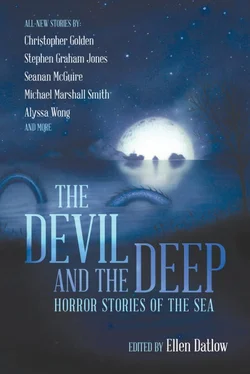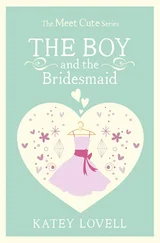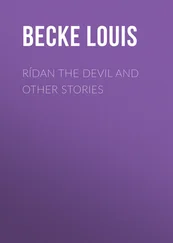“In our life jackets?” I said. At his insistence, we’d both donned them.
“It’d be different, anyway,” he mused.
“Maybe,” I said, slipping out of his grasp and sashaying back towards the rail with a come-hither look. He grinned and followed me. “Actually,” I said, “I just wanted to ask you something first.”
“Yeah?”
“Yeah.”
He spread his hands. “Well, then. Ask away.”
“Okay,” I said. “Why did you kill your brother?”
There was a moment that he blinked, still grinning, thinking it was a joke. Then his smile changed, became the crooked, soured thing it had been yesterday, and he went very still. The way a conger or a moray eel will, lying in its hole and waiting to strike. “What?” he said.
“Robin,” I said. “Robin York. Or Robin Gaunt, as he called himself around here.”
Ed licked his lips and his gaze strayed off to the side. I didn’t look, but I guessed there was something he thought he could use as a weapon. His eyes were uneasy, but there was a predator’s coldness in them. “How did you know?”
“His mum was called Emily, too,” I said. “He told me once.” It had been after the first time I’d slept with Robin; I’d forgotten about it until yesterday. “Twenty minutes on Google took care of the rest. Your brother vanished, didn’t he?”
“More than ten years ago,” Ed agreed, very still now, except for the slow tensing of his arms and legs. He was readying himself to leap; a moment’s inattention and he’d go for me.
“I found an old picture,” I said. “I had to look hard to see the resemblance—he didn’t have the long hair or beard in it. But that’d have been the point, right? He didn’t want to be recognised.”
Ed shook his head. “He always was difficult. Wrong.”
“Wrong? He’s not the one who killed someone.”
“He was a misfit,” said Ed. “He had so many advantages in life—advantages other men would have killed for. Dad never had them—he had to fight for everything he had. And what did Robin do? He threw it all back in Dad’s face. And then he ran away and vanished.”
“So why come and find him?” I said. “Why murder him?”
“I hadn’t heard from him in years,” said Ed. “Christ, we all thought he was dead. Dad had him declared dead, a couple of years ago. But then he wrote to me. Out of the blue.”
“What did he want?” I said. “Money?” Robin had never seemed particularly bothered about that, beyond the odds and ends he could pick up with odd jobs around town.
“Money? Oh, no. He had no interest in that, he said. Why would he? But he wanted to talk, Emily. He wanted to talk about the abuse .”
“What abuse?” But it was all falling into place. Robin had never said much about what had happened to him. There’d been stories of exploits and escapades with friends—equally wasted, of course—but nothing about his family, about wherever he and his wounds had come from.
“There was no abuse,” Ed shouted. “That’s the whole point. Dad was a good father. Stern, yes. He believed in discipline. That was all. Christ, you clip some little shit around the ear these days and it’s child abuse. He was just trying to bring us up right. To be men.”
But his eyes were full of pain, and I saw too much there. What had their childhoods held? What had Sir Richard York thought fit means to discipline his sons? Whatever it had been, it had left Robin afraid of anywhere that wasn’t his own four walls, left him starting awake at every sound in the middle of the night. And his brother? Everyone breaks in different ways, and finds different ways to deal with it. Robin’s had been to run and hide in another life. Ed had become the damage and called it normality.
That’s one of the things that lies in the deeps, never far enough from the surface; the only real difference between the broken ones and everyone else is that the broken ones know there isn’t one.
“But here was Robin—weak, he’d always been weak, and decadent, with his drugs and his sponging—here he was, putting our father— my father—in the same category as some bloody child molester. I wouldn’t have it. I wouldn’t let that degenerate blacken his name.”
“But he didn’t want money?” I said. The wind had started rising.
“No!” snapped Ed. “I told you. No, he just wanted to talk about it.”
“To who? The press?”
“To me, that’s what he said. But it wouldn’t have ended there. He’d have kept going, till it all came out. And I couldn’t have that. I wouldn’t allow it.”
“So you came here,” I said. “And you found him—on the coast road, right?”
“Crashed out on a bench,” said Ed. “Barely knew where he was, or who he was.”
“And you got him back into town, and then on here.” I nodded at the Emily ’s deck. “How did you get him to the beach? A dinghy?”
“He was out of it.” Ed had sidled towards me, a little. “Vegged out as soon as I got him on the boat. He only came round at the end.”
He’d gone pale, with a greasy sheen of sweat. His eyes didn’t quite seem to see me. He didn’t look warm anymore, or kind. There are places in your head that have no room for those things. “I was going to hit him with something. Stab him, then put him over the side. But I couldn’t. Too… final. But I couldn’t let him go on. He’d…” Ed focused on me, and his eyes were almost pleading. “Dad dying, you see, it had brought everything back to him. That’s why he’d started talking about it, and if he wasn’t made to shut up he’d have told someone else, and it would have got out, and…” He gestured helplessly. “I couldn’t have that.”
And I did understand. You do whatever it takes to cope with the damage. And if anything threatens your coping mechanism, your safety, your sanctuary, you do whatever it takes to protect it.
“So you got him on the beach and cuffed him to the pipe.” Clive had been half right, then. Robin’s death had been the work of someone without the resolve to commit the act themselves, so they’d snapped on the cuffs and let the tide do the work. He’d only been wrong about who.
“He was unconscious,” said Ed. He was shaking. A single tear ran down his cheek. “He didn’t wake up. I didn’t hear anything. I didn’t hear anything. ”
He said it again, and then again. I wondered how many times he thought he’d have to before he believed it.
I thought at first that that was it: something else had finally broken, and he had nothing left to say or do. I’d wondered at first why he’d stuck around—why not leave once the job was done?—but it wasn’t hard to understand. If anyone had ever worked out who Robin really was, his long-lost brother spending a few days on this beautiful bit of the coast would probably rouse less suspicion than if he’d popped in and out of the harbour on the day of Robin’s death.
I unzipped the pocket on my denim skirt, but as I did Ed moved, lunging for me. I kicked him under the knee and he fell with a scream that echoed across the whitecaps on the bay. I make a point of always ordering boots with steel toecaps. They’re more weight to drag around, but if you ever need to defend yourself they’re a big help.
Before he could get up, I took the cuffs out of my pocket. They’d belonged to an old—and slightly kinky—boyfriend, but they were police issue. I snapped one around Ed’s left wrist, looped the chain around one of the iron railings on the deck and snapped the other bracelet shut around his right.
“What the fuck?” he shouted. He leapt up, or tried to, and I stepped back as he jerked and yanked at the chain. When I was sure the rail wasn’t going to give, I walked back along the deck, to a small box at the base of the railings. I guessed that was where he’d been looking towards before. Inside were a flare pistol and a couple of distress flares. I loaded the pistol, pocketed the spare, then went into the Emily ’s wheelhouse and pointed her prow out to sea, before pushing the engines to full power.
Читать дальше












